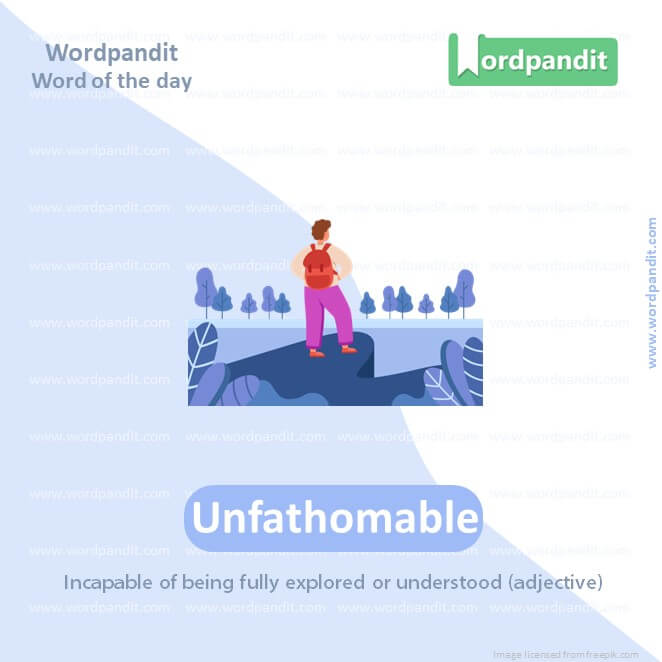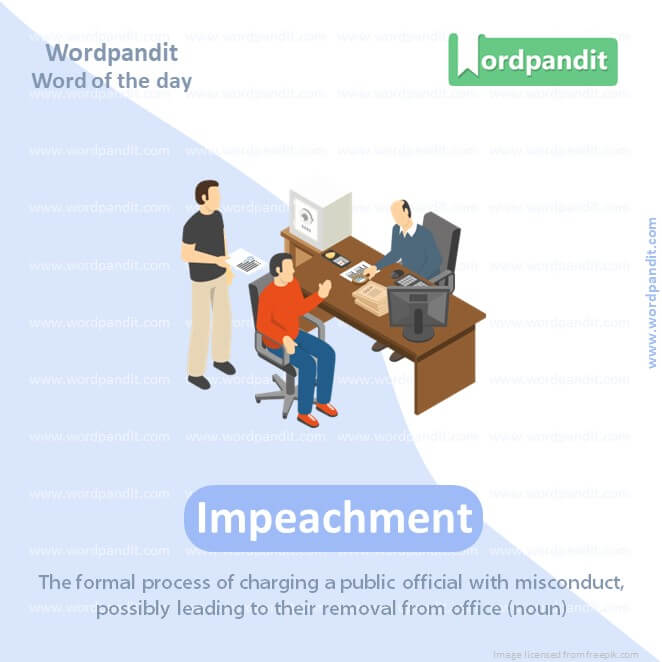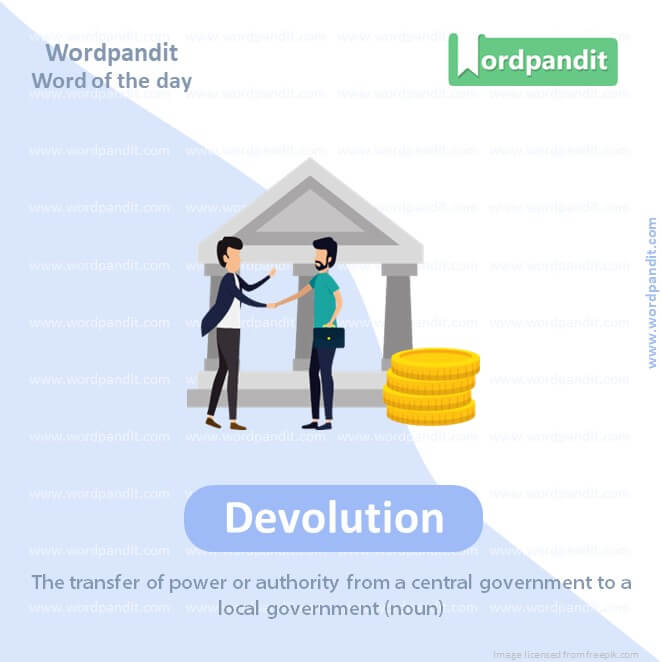Daily Vocabulary Words: List of Daily Used Words in Leading International Newspapers
Hi there. Welcome to this special section @ Wordpandit.
Our endeavour here is very simple: to highlight important daily vocabulary words, which you would come across in leading newspapers in the country. We have included the following newspapers in our selection:
• The New York Times
• The Washington Post
• Scientific American
• BBC
• The Guardian
• Psychology Today
• Wall Street Journal
• The Economist
We are putting in extensive work for developing your vocabulary. All you have got to do is be regular with this section and check out this post on a daily basis. This is your repository of words that are commonly used and essentially, we are posting a list of daily used words. Hence, this has significant practical application as it teaches you words that are used commonly in leading publications mentioned above.
Visit the website daily to learn words from leading international newspapers.

WORD-1: Complacent
CONTEXT: The wars in both Gaza and Ukraine should remind complacent Western leaders that our adversaries do not share our liberal values and, thus, are much less casualty-conscious than Western militaries are.
SOURCE: Washington Post
EXPLANATORY PARAGRAPH: Imagine feeling really comfortable and not wanting to change anything, even if there might be problems or better ways to do things. Complacent is when someone is too satisfied with themselves or their situation and doesn’t think they need to change or improve.
MEANING: Showing smug or uncritical satisfaction with oneself or one’s achievements (adjective).
PRONUNCIATION: kum-PLAY-sunt
SYNONYMS: Self-satisfied, Smug, Self-contented, Unconcerned, Pleased.
USAGE EXAMPLES:
1. The team became complacent after winning several games.
2. His complacent attitude led to missed opportunities.
3. We can’t afford to be complacent about our successes.
4. The company’s complacent approach resulted in a loss of market share.

WORD-2: Betrayed
CONTEXT: He sold his soul and betrayed American democracy for nine lousy months in the speaker’s chair.
SOURCE: New York Times
EXPLANATORY PARAGRAPH: Think about telling a secret to your friend, and then they tell it to someone else. Betrayed is how you feel when someone you trust breaks that trust, like telling your secret. It means feeling hurt because someone has been disloyal to you.
MEANING: Deceived or let down by someone trusted (verb).
PRONUNCIATION: bih-TRAYD
SYNONYMS: Deceived, Double-crossed, Cheated, Backstabbed, Misled.
USAGE EXAMPLES:
1. She felt betrayed when her friend revealed her secret.
2. His actions betrayed his true intentions.
3. The politician betrayed his supporters’ trust.
4. The spy betrayed his country.

WORD-3: Unfathomable
CONTEXT: The catalogue of torture inflicted on him is unfathomable.
SOURCE: The Guardian
EXPLANATORY PARAGRAPH: Imagine looking into the deepest part of the ocean where it’s so deep you can’t see the bottom. Unfathomable is like that. It means something is so deep or complicated that it’s hard to understand or imagine.
MEANING: Incapable of being fully explored or understood (adjective).
PRONUNCIATION: un-FATH-uh-muh-buhl
SYNONYMS: Incomprehensible, Unthinkable, Unbelievable, Inscrutable, Bottomless.
USAGE EXAMPLES:
1. The universe is vast and unfathomable.
2. Her knowledge on the subject seemed unfathomable.
3. The reasons behind his decision were unfathomable.
4. They stared into the unfathomable depths of the ocean.
WORD-4: Perceived
CONTEXT: Even many of his fans were wondering: Was he up to the job? But at some point he found his mojo and began calling out political BS wherever he perceived it, often to the dismay of progressives.
SOURCE: New York Times
EXPLANATORY PARAGRAPH: Imagine someone making a big announcement at school, like about a holiday or a special event. Proclaims means to say something important or official in a public and formal way.
MEANING: Announces something publicly or officially (verb).
PRONUNCIATION: pro-KLAYMS
SYNONYMS: Declares, Announces, States, Publicizes, Broadcasts.
USAGE EXAMPLES:
1. The mayor proclaims today a holiday.
2. The document proclaims the rights of citizens.
3. The leader proclaims a new era of peace.
4. The law was officially proclaimed.

WORD-5: Impeachment
CONTEXT: An impeachment investigation and his re-election campaign heating up, Biden père needs to finally figure out how to handle questions and accusations about his younger son without losing his cool or sounding defensive.
SOURCE: New York Times
EXPLANATORY PARAGRAPH: Imagine if someone at school breaks the rules, and the teachers have a big meeting to decide if they should be punished. Impeachment is like that but for a big official, like the president. It’s when they might have done something wrong, and others decide if they should be removed from their job.
MEANING: The formal process of charging a public official with misconduct, possibly leading to their removal from office (noun).
PRONUNCIATION: im-PEECH-ment
SYNONYMS: Accusation, Charge, Indictment, Prosecution, Arraignment.
USAGE EXAMPLES:
1. The president faced impeachment for his actions.
2. The impeachment process is complex and political.
3. The official was acquitted after the impeachment trial.
4. The impeachment charges were serious.

WORD-6: Devolution
CONTEXT: McKay Coppins’s book in which the retiring Republican senator and erstwhile presidential nominee laments the sad devolution of his political party.
SOURCE: New York Times
EXPLANATORY PARAGRAPH: Imagine the teacher lets your class make some of its own rules instead of the school making all the rules. Devolution is like that. It’s when power or responsibility is given from a higher level of government to a lower level, like from a country to a state or city.
MEANING: The transfer of power or authority from a central government to a local government (noun).
PRONUNCIATION: dev-uh-LOO-shun
SYNONYMS: Decentralization, Transfer, Delegation, Handover, Assignment.
USAGE EXAMPLES:
1. The devolution of powers to local authorities was significant.
2. The policy involved the devolution of responsibilities.
3. The devolution process was agreed upon by the government.
4. They discussed the benefits of devolution.
WORD-7: Rewilded
CONTEXT: Land that is burnt for sport, drained, overgrazed, over-fertilised or polluted, fuels the climate and wildlife emergency. Conversely, land that is rewilded heals it.
SOURCE: The Guardian
EXPLANATORY PARAGRAPH: Imagine a park in the city where they let plants grow wild and animals live like in nature. Rewilded is when an area is made to go back to its natural, wild state, like the park being allowed to grow without people taking care of it.
MEANING: Restored to its natural, wild state; especially in terms of reintroducing and protecting native wildlife (verb).
PRONUNCIATION: ree-WILD-ed
SYNONYMS: Restored, Rejuvenated, Naturalized, Revitalized, Reestablished.
USAGE EXAMPLES:
1. The forest was rewilded to increase biodiversity.
2. They rewilded the area by planting native species.
3. The rewilded park became a haven for wildlife.
4. The project aims to rewild several acres of land.
WORD-8: Proclaims
CONTEXT: Just in time for the holiday giving season, Ms. Cheney topped the best-seller list with “Oath and Honor” — which isn’t, as its subtitle proclaims, “A Memoir and a Warning” so much as an evisceration of Mr. McCarthy and other Trump toadies. So festive!
SOURCE: New York Times
EXPLANATORY PARAGRAPH: Imagine someone making a big announcement at school, like about a holiday or a special event. Proclaims means to say something important or official in a public and formal way.
MEANING: Announces something publicly or officially (verb).
PRONUNCIATION: pro-KLAYMS
SYNONYMS: Declares, Announces, States, Publicizes, Broadcasts.
USAGE EXAMPLES:
1. The mayor proclaims today a holiday.
2. The document proclaims the rights of citizens.
3. The leader proclaims a new era of peace.
4. The law was officially proclaimed.
WORD-9: Insurrection
CONTEXT: The Colorado Supreme Court found that Mr. Trump had participated in an insurrection and is thus barred from holding office again under the 14th Amendment.
SOURCE: New York Times
EXPLANATORY PARAGRAPH: Imagine a big group of people trying to take over their school because they don’t like the rules. Insurrection is like that, but bigger. It’s when a large group of people rise up against authority or government, often in a violent way.
MEANING: A violent uprising against an authority or government (noun).
PRONUNCIATION: in-suh-REK-shun
SYNONYMS: Revolt, Rebellion, Uprising, Mutiny, Revolution.
USAGE EXAMPLES:
1. The insurrection was quelled by the military.
2. The leaders of the insurrection were arrested.
3. The insurrection took the government by surprise.
4. He was charged with inciting an insurrection.
WORD-10: Evisceration
CONTEXT: A Memoir and a Warning” so much as an evisceration of Mr. McCarthy and other Trump toadies. So festive!
SOURCE: New York Times
EXPLANATORY PARAGRAPH: Imagine someone taking out all the important parts of something, like taking the engine out of a car so it can’t go. Evisceration is like that. It’s when all the essential parts of something are removed or destroyed, leaving it empty or useless.
MEANING: The removal or destruction of the most important or essential parts of something (noun).
PRONUNCIATION: e-vis-uh-RAY-shun
SYNONYMS: Gutting, Devastation, Despoiling, Destruction, Hollowing out.
USAGE EXAMPLES:
1. The evisceration of the building left it a mere shell.
2. The policy led to the evisceration of the public service.
3. The evisceration of the law rendered it ineffective.
4. The company faced evisceration after the takeover.
Vocabulary Pronunciation
The dance of language learning comprises two inseparable partners: vocabulary and pronunciation. The rhythm of this dance is best enjoyed when both partners are in sync. Essentially, mastering ‘vocabulary pronunciation’ is key to expressing and understanding a language effectively. However, what is the ideal approach to learn ‘vocabulary pronunciation’?
Firstly, the process of learning ‘vocabulary pronunciation’ isn’t a sprint. Rather, it’s a marathon where consistency is vital. A gradual and steady pace of learning new words and their pronunciation offers enough time to effectively practice and commit them to memory.
Secondly, to master ‘vocabulary pronunciation’, go beyond written text. Dwell in the world of audible language, such as documentaries, podcasts, music, or language-learning apps that provide pronunciation guides. These memorable auditory experiences aid in refining your ‘vocabulary pronunciation’ and offer a glimpse into the authentic sounds of the language.
Another beneficial strategy for learning ‘vocabulary pronunciation’ involves the use of phonetic transcriptions. They offer systematic approaches to understanding the sound system of a language, thereby improving pronunciation.
Most importantly, do not shy away from practicing your ‘vocabulary pronunciation’. Be it in a language exchange meeting, a conversation with a native speaker, or even a self-recording session, active verbalization massively boosts your pronunciation prowess.
Lastly, always remember to train your ears as much as you train your tongue. Listening carefully to native speakers helps you capture the subtleties of ‘vocabulary pronunciation’, contributing to better delivery when you speak.
In conclusion, mastering ‘vocabulary pronunciation’ is not an overnight journey. It’s a process of intentional practice, sustained listening, conscientious reflection and active usage. As you chart this course with diligence and patience, you will witness your ‘vocabulary pronunciation’ skills blossom, leading you to communicate with greater fluency and confidence.











